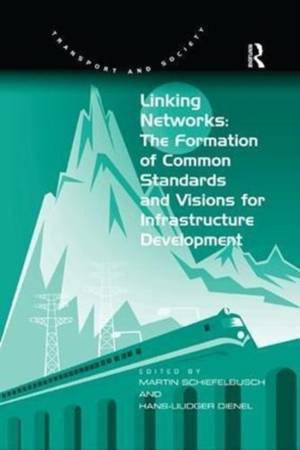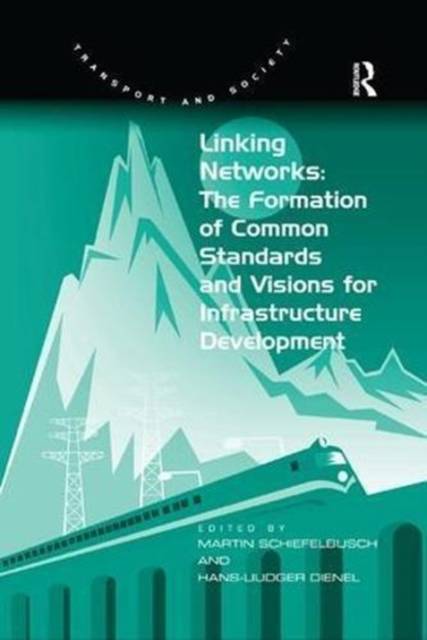
- Afhalen na 1 uur in een winkel met voorraad
- Gratis thuislevering in België vanaf € 30
- Ruim aanbod met 7 miljoen producten
- Afhalen na 1 uur in een winkel met voorraad
- Gratis thuislevering in België vanaf € 30
- Ruim aanbod met 7 miljoen producten
Zoeken
Linking Networks
The Formation of Common Standards and Visions for Infrastructure Development
Hans-Liudger Dienel
Paperback | Engels
€ 64,95
+ 129 punten
Uitvoering
Omschrijving
Presenting recent research on the international integration of infrastructures in Europe, this book combines general and methodological chapters and examples from different a variety of sectors such as transport, electricity and communication networks. Particular focus is on the contrast between the 'Europe of nation states' of the nineteenth century (up to 1914) and the emerging 'integrated Europe' after World War II. Additional contributions provide perspectives from beyond Europe. The wide range of topics gives a good overview of the different challenges posed and the strategies employed in each sector to establish internationally compatible networks, procedures and standards. This work strengthens comparative research as a complement to the detailed analysis of singular cases that often characterises previous works in this field. Methodologically, it therefore contributes to the progress of tools and strategies for comparative historical research. Part of the emerging research area dealing with the mechanisms of international collaboration, this book brings together recent research from European integration history, policy studies, political economy and cultural studies. Considering the growing intensity of international collaboration and exchange in many parts of social and economic life, it is also of topical interest.
Specificaties
Betrokkenen
- Auteur(s):
- Uitgeverij:
Inhoud
- Aantal bladzijden:
- 296
- Taal:
- Engels
Eigenschappen
- Productcode (EAN):
- 9781138546523
- Verschijningsdatum:
- 12/02/2018
- Uitvoering:
- Paperback
- Formaat:
- Trade paperback (VS)
- Afmetingen:
- 156 mm x 234 mm
- Gewicht:
- 417 g

Alleen bij Standaard Boekhandel
+ 129 punten op je klantenkaart van Standaard Boekhandel
Beoordelingen
We publiceren alleen reviews die voldoen aan de voorwaarden voor reviews. Bekijk onze voorwaarden voor reviews.











